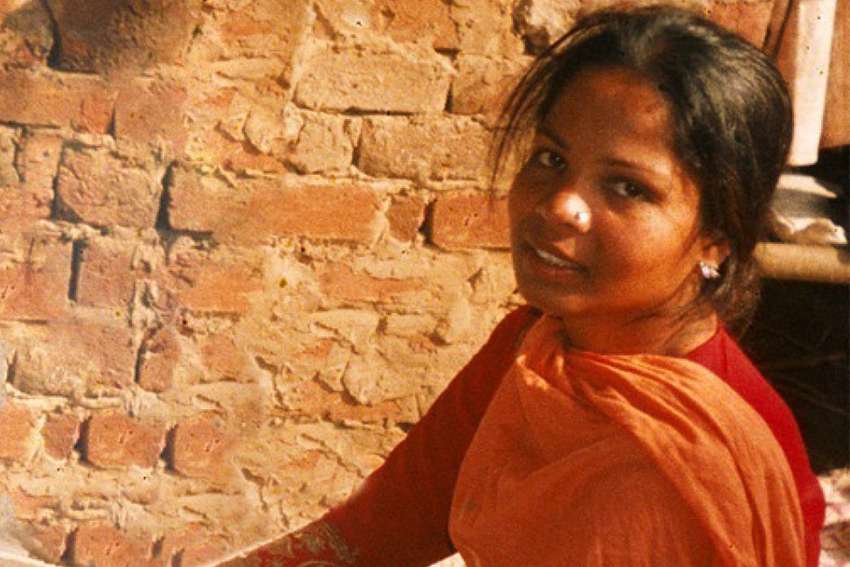Asia Bibi, the Catholic woman who spent eight years on death row in Pakistan, will be welcomed to a small town in Canada, where she will be reunited with her two teenage daughters, along with the family who aided and protected her daughters in Lahore while the mother sat in jail through years of legal appeals.
The location of Bibi’s daughters and family friends must remain confidential for now, a Canadian bishop who has supported bringing Bibi to Canada told The Catholic Register.
“Her safety is the primary concern. After years of suffering for her faith, the simple joy of being reunited with her family in a safe place is our profound hope for her."
On Jan. 29 the Supreme Court of Pakistan rejected a final attempt to have Asia Bibi retried on blasphemy charges that stem from a 2009 argument between Bibi and fellow farm labourers who accused her of drinking from the same cup as her Muslim co-workers.
With news of the Pakistani court’s decision, Prime Minister Justin Trudeau revealed Canada has offered asylum to Bibi and her husband Ashiq Masih and that the offer has been accepted.
It can now be revealed that Bibi and Masih’s daughters, who are 18 and 19 years old, have been in Canada since just before Christmas, family friend Nadeem Bhatti told The Catholic Register.
Bhatti helped bring Bibi’s daughters and the family of six who befriended and helped Bibi’s daughters and husband in Lahore to Canada. The Lahore family’s close association with Bibi put them in danger after Pakistan’s top court initially found no case against Bibi in October.
The Church will extend whatever aid it can to Bibi and her family.
"Like many dioceses throughout the world, we would be grateful and happy to be able to play a role in supporting the Bibi family in their resettlement,” said the bishop. “We are grateful that they are being welcomed to Canada.
“If asked, we would be happy to assist the family in any way possible. They have suffered because of their faith and their faith has been unwavering."
If Bibi chooses to assume a new identity and establish a life for her family in an undisclosed location, media should give her that opportunity, the bishop said. The bishop asked to remain anonymous.
He also encouraged the media to give the family space to transition quietly into Canadian life.
“Whatever arrangements are made for Bibi and her family, and wherever they are settled, they deserve to be able to make decisions about their future in peace,” the bishop said.
In the two months after the Pakistani court made its ruling public on Oct. 31, Bibi’s daughters and their family friends moved three times to various secret locations in Pakistan, while followers of politician-cum-cleric Khadim Hussain Rizvi searched house-to-house looking to kill them. Rizvi’s party, Tehreek-e-Labbaaik, had challenged the October acquittal.
Following the Oct. 31 announcement that Pakistan’s Supreme Court had acquitted Bibi, Rizvi announced a fatwa that put a price on the heads of the judges who heard the case, various government ministers and Prime Minister Imran Khan.
Pakistani police and security forces arrested up to 3,000 militants in an effort to protect Bibi, Bhatti said. The atmosphere was so charged and so dangerous Bibi’s daughters and friends needed immediate sanctuary in December, Bhatti told The Catholic Register.
The global reach of Tehreek-e-Labbaaik makes it paramount that no information be published which could allow Asia Bibi or her family to be tracked, the Canadian bishop said.


